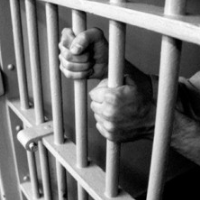As Exonerations Become Known, California Drops Down the List of Those Wrongly Convicted of Crime

A record number of wrongly convicted people were set free last year in the United States, according to a new report (pdf) by a group that tracks exonerations. But as past exonerations come to light, California is slipping down the list.
The National Registry of Exonerations said 87 prisoners were exonerated in 2013, the highest ever totaled, including six in California. Texas led the way with 13, followed by Illinois (9), New York (8) and Washington (7).
About two-thirds of the 87 exonerations involved rape and/or murder convictions. Many of the overturned convictions were a result of false confessions coming to light or the discovery that no crime was actually committed.
“In a steady number of cases we make horrible mistakes,” report author Samuel Gross, a law professor at the University of Michigan, told U.S. News & World Report.
The latest tally brought the total of known exonerations nationally to 1,281 by the end of last year, but the number is inexact and growing as more information becomes available. The data so far has been gathered from 46 states, the District of Columbia, the Commonwealth of Puerto Rico, the military and at least 23 federal districts.
The past two years, there were large leaps in the number of exonerations reported since 1989, but they were not necessarily a result of increased exonerations. “The main reason for the rapid increases in the number of exonerations in California and later in New York is the nature of the searches we have been conducting,” authors of the report wrote.
The National Registry said it had added 280 previously unknown exonerations the past two years to its list as they became known.
At the end of 2012, California reported a total of 119 exonerations since 1989. That led the nation. But the report’s authors said part of that dominance was their focus on gathering information from the nation’s most populous state. When they turned their attention to New York, it jumped from a fifth-place finish of 104 by the end of 2012 to 152 a year later.
California slipped to second despite increasing its recognized total of exonerations to 136. But even that lofty position is misleading because the size of a state’s population has a large bearing on its rank. California actually has a per capital exoneration rate of 0.876, below the standardized national average of 1.
Seventeen percent of those exonerated in 2013 had at first pleaded guilty to a crime they did not commit. This usually occurred because the defendant was offered a plea bargain, in which a lesser sentence was promised in exchange for a guilty plea.
Gross found that no crime occurred in 27 of the cases. Examples of these mistakes included:
· Joseph Awe of Wisconsin, who served nearly three years in prison for arson until officials realized the fire was an accident.
· Nicole Harris of Illinois who was convicted of murdering her four-year-old son, who it turned out accidentally suffocated while playing with his brother. It was determined that Harris had been coerced into pleading guilty by Chicago police, who—during 27 hours of questioning—pushed and threatened her, forbid her to use the restroom, and prevented her from having food or water. She spent eight years in prison.
Other findings from the report showed the number of exonerations resulting from DNA evidence was down again, which has been the case since 2009, but exonerations from non-DNA investigations was up.
“I think some DNA exonerations will keep happening, but not in the numbers we saw 10 or 15 years ago,” Gross said. “If the other trends continue, they’ll become a smaller fraction of all exonerations as time goes on.”
Gross partially credits law enforcement organizations for the report’s findings, as 38% of the exonerations were initiated by such groups.
–Noel Brinkerhoff and Ken Broder
To Learn More:
Report: Exonerations Hit Record High in 2013 (by Steve Nelson, U.S. News & World Report)
Study Puts Exonerations at Record Level in U.S. (by Timothy Williams, New York Times)
Exonerations in 2013 (National Registry of Exonerations) (pdf)
Report Catalogues Exonerated Americans who Served More than 10,000 Years in Prison (by Matt Bewig, AllGov)
California Best at Exonerating Wrongly Convicted, to the Disappointment of Prop. 34 Foes (by Ken Broder, AllGov California)
- Top Stories
- Controversies
- Where is the Money Going?
- California and the Nation
- Appointments and Resignations
- Unusual News
- Latest News
- California Forbids U.S. Immigration Agents from Pretending to be Police
- California Lawmakers Urged to Strip “Self-Dealing” Tax Board of Its Duties
- Big Oil’s Grip on California
- Santa Cruz Police See Homeland Security Betrayal in Use of Gang Roundup as Cover for Immigration Raid
- Oil Companies Face Deadline to Stop Polluting California Groundwater





